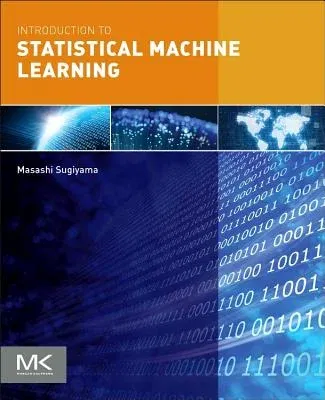Masashi Sugiyama
(Author)Introduction to Statistical Machine LearningPaperback, 25 September 2015

Qty
1
Turbo
Ships in 2 - 3 days
Only 1 left
Free Delivery
Cash on Delivery
15 Days
Free Returns
Secure Checkout

Print Length
534 pages
Language
English
Publisher
Morgan Kaufmann Publishers
Date Published
25 Sep 2015
ISBN-10
0128021217
ISBN-13
9780128021217
Description
Product Details
Author:
Book Format:
Paperback
Country of Origin:
US
Date Published:
25 September 2015
Dimensions:
23.37 x
19.05 x
2.54 cm
ISBN-10:
0128021217
ISBN-13:
9780128021217
Language:
English
Pages:
534
Publisher:
Weight:
1088.62 gm